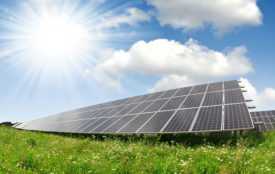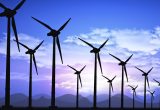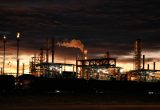World Future Energy Summit to Showcase Growing Clean-Energy Market in Middle East
The growing renewable energy investment opportunity in countries across the Middle East and North Africa (MENA) is garnering attention by international investors who will be at January’s World Future Energy Summit (WFES) to explore project opportunities.
Through Masdar, Abu Dhabi’s renewable energy company and the host of WFES, the UAE is quickly becoming a leading renewable energy player regionally and globally.
WFES is part of Abu Dhabi Sustainability Week (ADSW), January 17-24, a yearly platform that addresses the interconnected challenges of energy and water security, climate risk and sustainable development.
“Through its energy leadership, the UAE has helped galvanize the tremendous rollout of investment into renewables that we are seeing in countries across the Middle East,” said Dr. Ahmad Belhoul, CEO of Masdar. “As a platform that brokers partnerships, attracts investments and launches new innovations, WFES is an essential component in driving the region’s renewable energy growth.”
With 32,000 attendees expected from 170 countries over four days from 19-22 January in Abu Dhabi, WFES 2015 will bring together the key players – from industry, technology, finance and government – needed to accelerate commercial opportunities in the renewable energy and clean technology sectors.
The WFES agenda will offer delegates unmatched insight about the growing market opportunities in the Middle East and Africa, home to six of the world’s 10 fastest growing economies. As the region is attracting significant attention by international investors, several sessions are devoted to understanding the regulatory and institutional frameworks being put into place to encourage investments for renewable energy projects.
MENA countries are planning to install up to 37 gigawatts of renewable energy projects within the next 10 years, and several major initiatives by the UAE are helping to realize this goal.
The UAE is already the largest renewables market in the Gulf Cooperation Council (GCC) region, with plans to grow. Abu Dhabi intends to source 7 percent of its domestic power needs from renewables by 2020. Overall, the UAE has more than 120 megawatts of installed renewable energy capacity, the largest project being Masdar’s Shams 1, a 100 megawatt concentrated solar power (CSP) facility in Abu Dhabi. Masdar’s renewable energy projects extend around the world, with nearly two gigawatt of clean power in operation or under development in Jordan, Oman, the UK, and Spain, among other countries.
Other major renewables commitments in the MENA region include a $9 billion solar power project underway in Morocco; $2.1 billion worth of clean energy investments planned in Jordan, and $1 billion of investments planned for solar power in Egypt.
Hosted by Masdar, Abu Dhabi’s renewable energy company, WFES also receives support from ADNOC and Emirates Global Aluminium (EGA). In addition to WFES, ADSW will feature the third International Water Summit, the second edition of EcoWASTE, and the seventh Zayed Future Energy Prize Award Ceremony, as well as the Fifth General Assembly of the International Renewable Energy Agency.








